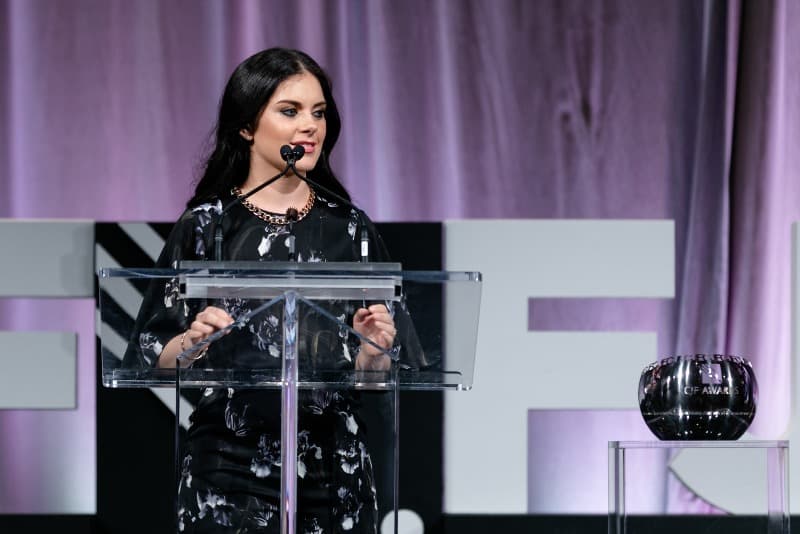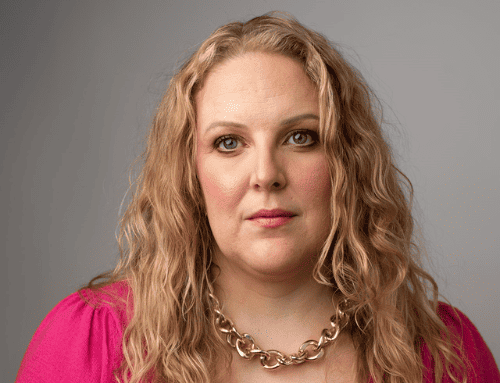When Robyn Doolittle first embarked on the Unfounded investigation into how sexual assault cases are handled by police in Canada, The Globe and Mail journalist never imagined the scope of change it would set in motion.
“It’s incredibly rewarding that 37,000-plus cases are being reviewed,” Doolittle says, “that thousands of cases are being recoded, that hundreds of cases are being re-opened, and that there’s a shift in specialized [police] training.”
The investigation, published by The Globe and Mail in February 2017, uncovered that police dismiss one in five sexual assault claims in Canada as baseless. Through a series of stories, Unfounded exposed deep cracks in law enforcement’s approach to sexual assault complaints, and heard from women whose reports were coded as “unfounded” and thus deemed not to have happened. Within a few months of publication, the 20-month investigation prompted many police forces across Canada to begin major shifts in their approach to the issue.
In recognition of this incredible contribution to reporting on gender equality issues, the Canadian Journalism Foundation, in association with the Canadian Women’s Foundation, awarded Doolittle the 2018 Landsberg Award. The annual prize, which was presented in June, is named for veteran journalist and social activist Michele Landsberg. The Unfounded series won many other accolades, in addition to Doolittle being recognized as 2017 journalist of the year at the National Newspaper Awards.
Looking ahead, the great news is that Doolittle isn’t done with investigating issues related to gender equality in Canada. The Foundation talked to her about the ongoing impact of Unfounded, the #MeToo Movement in Canada, and the focus of her upcoming book.
Q: What was the most challenging part of the Unfounded investigation for you?
A: By far the most challenging thing was that the numbers were not publicly available. When I became interested in this area, I realized very early on that there was no way to actually investigate this issue, because no one was keeping track.
I had to gather the data myself by going to each police service individually. So there was an eight-month period before this investigation really started, of just getting the basic numbers and then using that as a jumping-off point.
Second to that is when I was looking into specific cases, I was trying to find people who had complained to police but not had their [complaints] go forward, and that was another really challenging thing because there aren’t records. So how do you find people who don’t exist on paper? I did that mainly by going to rape crisis centres and rallies.
Q: What was the most rewarding part?
A: The series exceeded even my most ambitious and lofty expectations. A month and a half ago I got a call from another woman who had been featured in the series, who was telling me that police had reopened her case, had reinvestigated it, and had laid a charge.
But the series was never about sending more people to jail, it was about women being taken seriously.
Q: How have the women who shared stories of sexual assault — who may have been initially reluctant to participate — reacted to the outcome of the Unfounded investigation?
A: They were very much a part of this, and they feel — rightly so — that this is their victory, and that is the best part for me. When I was interviewing all of these people over the course of a year and a half, there was nervousness and fear about how they were going to be viewed once they spoke out.
There were a lot of dark times too, where people thought, ‘This just isn’t worth it, this is causing more stress in my life,’ and [I was saying,] ‘This is going to be worth it. Things are going to change.’ Being able to fulfill that promise is wonderful.
And they very much know it’s because they spoke up. Otherwise the series is just a data and numbers story; people connect with data when they realize those numbers are people.
Q: That must have felt like a huge responsibility to your sources.
A: Yes, but that’s OK, that’s what we do [as journalists].
I think there’s a wonderful shift that we’re seeing in how journalism is done. When I started in this industry about 12 years ago, there was this feeling that, ‘I’m the journalist and you’re the source and you will do what I say, and I have all the power and that’s it.’
I very much took a different approach with this. [My sources] were very much kept up to date the entire time on what was happening with the series. I gave all of the complainants I interviewed the ability to back out if they felt uncomfortable at any point. We had a lot of conversations about anonymity, how they wanted to be identified … and that relationship-building with sources made the investigation possible because they trusted me and they trusted The Globe.
I really like that we’re shifting away from the old model. I think our profession can do a better job of communicating with the people who are telling their stories … . You can be completely fair and accurate and true to the story, and be responsible and fair to your source.
Q: The Unfounded investigation focused on how police handle cases of sexual assault. What other aspects of how this issue is dealt with in Canada do you feel are the highest priorities for action and change?
A: I think the most important thing is training.
When I started thinking about investigating how the criminal justice system deals with sexual assault, I thought I would be looking at the courts. And early on it became apparent that there were steps before that. The police are the gate-keepers to the court system; if police don’t investigate the case, it’s not going to get before a prosecutor, so it’s never going to get before a judge.
It’s not that police are maliciously out there not investigating sex assault crimes. There are rape myths and stereotypes that still exist in society, and they still exist among police officers. I found a lot of cases with strong or viable evidence were being dismissed because of rape myths or because the officer wasn’t educated on Canadian consent laws … or they were unaware of how trauma could impact a victim’s behaviour during an attack, and their ability to recount it afterwards. So training is, I think, the absolute most important thing, and we’re seeing a lot of changes on that front, which is great.
The second component, is that once you have the training, you have to have someone making sure that it’s being implemented and that it’s working. The gold standard of oversight in sexual assault is the Philadelphia Model; front-line workers in the violence against women sector are given access to raw police investigative files to look for signs of bias and investigative missteps. And since the model has been implemented there, the unfounded rate has dropped from 18 per cent to four per cent, so that’s a really good indicator that it’s working.
Q: You’re working on a new book called Had It Coming, about sexual politics, the #MeToo Movement, and rape culture. How do we harness the momentum of #MeToo to bring about systemic change?
A: I can speak about this from a journalistic perspective, because I’m not an activist.
I’m interested in stories with a social justice bent. From where I’m sitting, my platform is that I can do investigative journalism in this area and put the information out there and then others can run with that.
I think, from The Globe’s perspective, we have to stay on top of the story. That’s our role in this. A lot of promises were made after the Unfounded investigation [on the part of law enforcement, politicians, and government agencies], and we have to make sure that they’re kept.
The series launched in February 2017 and we went back before the end of the year and audited every police service in the country to see what they were doing: How many cases were they re-doing? How many cases had they recoded? Were they changing policies? Did they implement new training?
We put all that information out there in the public for everyone to see, so that’s our role.
Q: In the wake of many high-profile allegations of sexual harassment and assault that have come out of the #MeToo Movement, some have argued that due process has been abandoned in favour of “vigilante justice”, unfairly damaging reputations and careers. What is your response to that?
A: This is what I want to look at in my book – this due process question is the really interesting one. Because, one, I agree that there are real concerns [about the fact that] someone can make an accusation on Twitter on Monday, and someone [else] is packing up their desk on Tuesday.
But to try to apply quote-unquote due process, which basically means that someone is entitled to justice in the context of our justice system — how does that work if [someone’s experience of sexual harassment or assault] doesn’t meet the standard of a criminal complaint?
So, if we’re saying that we can’t provide due process for these men, and women can never say anything [about experiencing sexual harassment or assault] — that is not an option. Sexual harassment has had its best-before date … we need to move past this.
I don’t have an answer right now, but that’s what my book will be exploring.
Robyn Doolittle’s book, Had it Coming, is scheduled for publication by Penguin Random House Canada in 2019.
Learn More:
- AFTERMETOO, a national movement to activate change on sexual violence in Canada, has partnered with the Canadian Women’s Foundation to create a fund that addresses the increased demand on sexual violence support services across Canada.
- Confronting Sexual Harassment in the Canadian Film Industry with TIFF
- The Facts about Sexual Assault and Harassment in Canada
Take Action:
- Sign up for our e-newsletter to have our latest stories and resources sent to your inbox.
- Follow us on Facebook and Twitter to join a national conversation about gender equality.







